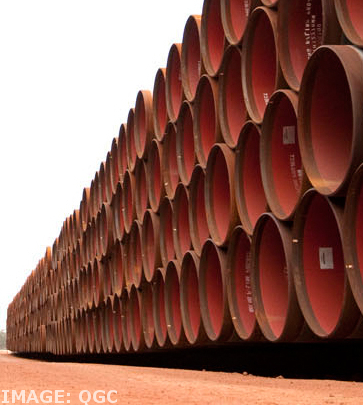Pipe plans blocked
 A major gas pipeline project on Indigenous land has stalled.
A major gas pipeline project on Indigenous land has stalled.
The $800 million Jemena Northern Gas Pipeline project will see 620 kilometres of pipe from Tennant Creek to Mount Isa to connect the remote gas networks and allow access to east coast export facilities.
Jemena has announced it is delaying the project because it cannot access traditional owners’ land.
Reports say the Northern and Central Land Councils told Jemena that the Warumungu and Wakaya Land Trusts had given their consent to start land clearing, but that this was not correct.
Warumungu traditional owners say they were not told that the pipeline could carry fracked gas, if the NT Government lifts its current moratorium.
The Indigenous groups are strongly opposed to coal seam gas extraction, so much so that they do not even want gas extracted in other parts of the country to be transported across their lands.
But the land councils negotiating on the traditional owners’ behalf say they did not misrepresent the plans to traditional owners when they agreed to the project.
“The issue of fracking in this pipeline was presented to traditional owners who attended meetings in Tennant Creek ... and it was in fact on that basis that they instructed both the NLC and CLC to negotiate with the company to build the pipeline,” the Northern Land Council's (NLC) Joe Morrison told the ABC.
“The package that's been finalised has been agreed to by lawyers representing those individuals,” said the Central Land Council's (CLC) chief executive David Ross.
The Wakaya Land Trust is still negotiating with Jemena, and while it has expressed concerns over the pipeline carrying fracked gas, it is unclear if their worries are insurmountable.
Jemena says it is “fully committed to building and operating the Northern Gas Pipeline project, and confident the outstanding approvals [would] be finalised over the coming weeks”.







 Print
Print